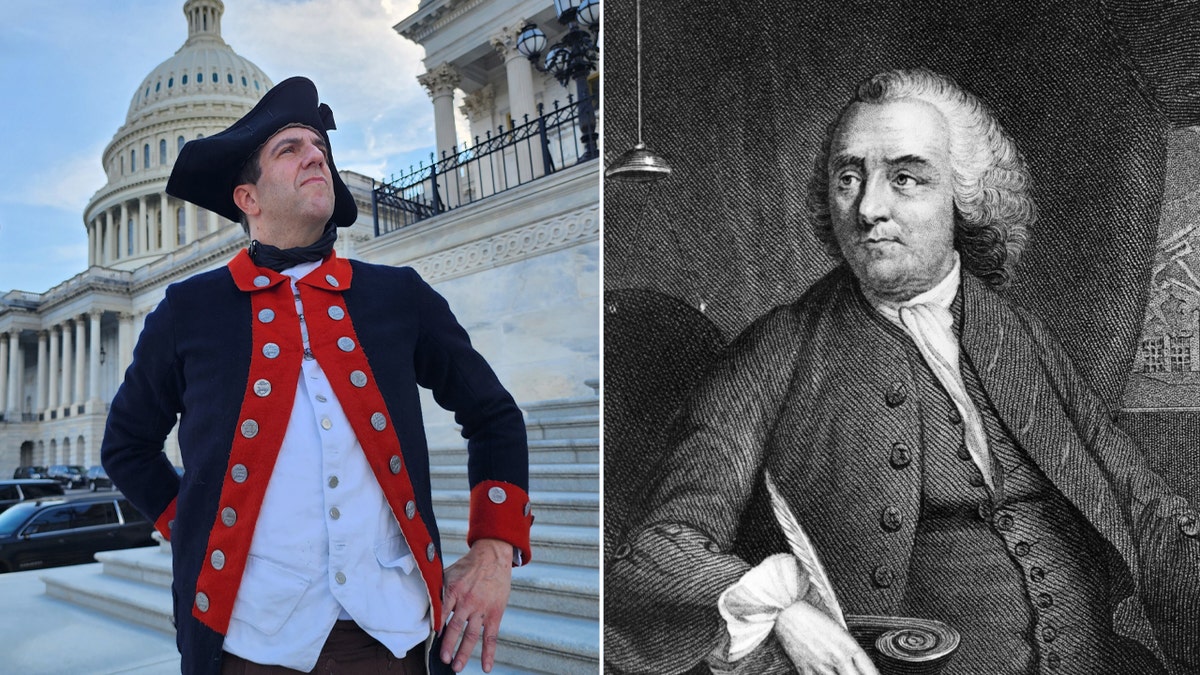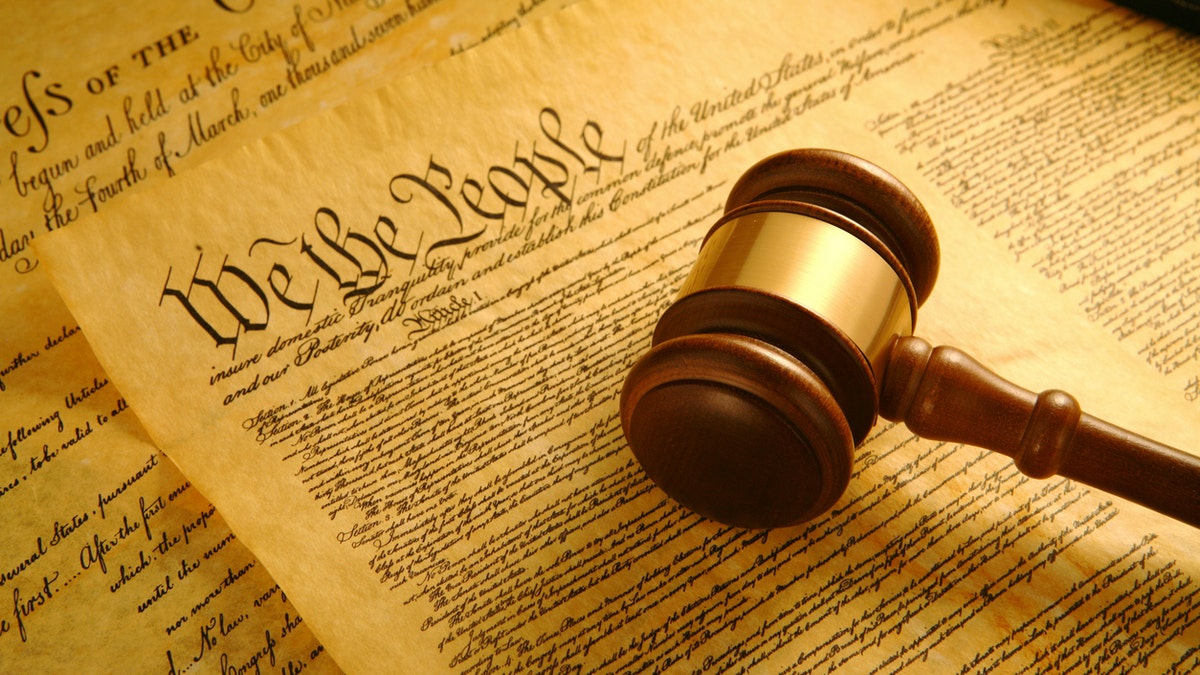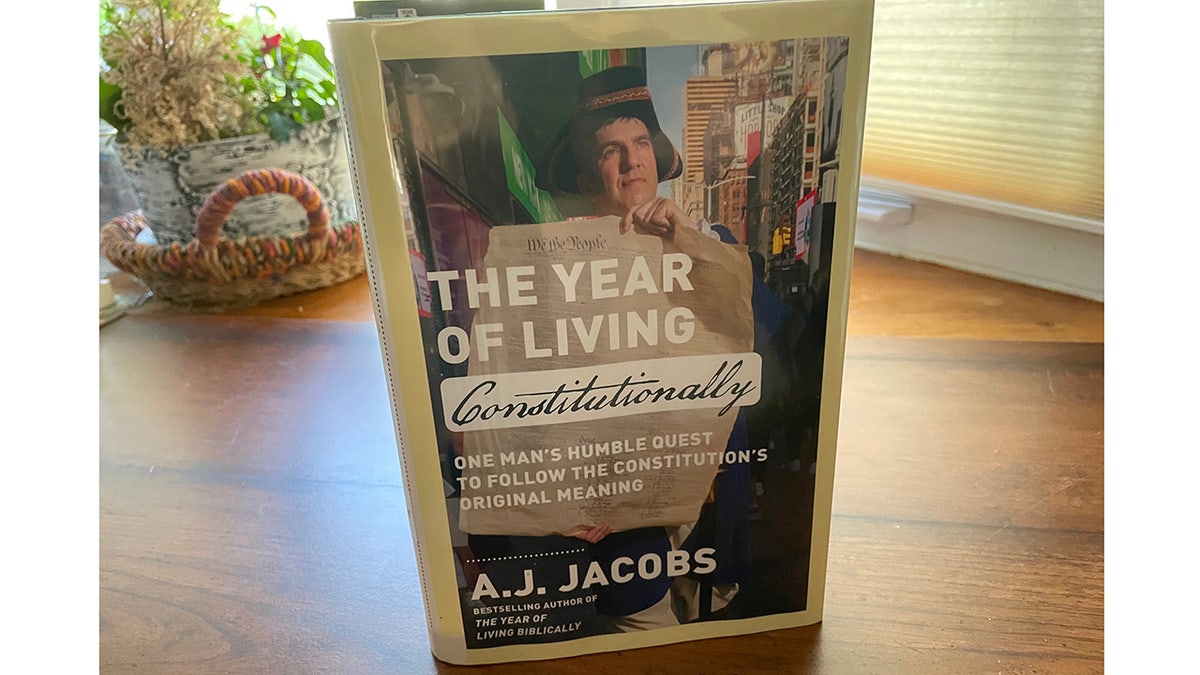I recently wrote a book in which I tried to understand America’s past and present by living like the Founding Fathers did.
We’re talking candles, quill pens, muskets, you name it.
In a new series of articles — of which this is the first — I’m sharing some of the life lessons I learned from the Founders. (See the video at the top of this article.)
NEW YORK CITY MAN ‘LIVED’ THE CONSTITUTION FOR A YEAR. HERE ARE 7 THINGS HE LEARNED
My favorite Founding Father is Benjamin Franklin for many reasons.
He was a wonderful writer, political thinker and inventor (including of swim fins!).
But another reason I admire Franklin is that he was a huge fan of civil discourse.

In his new book, “The Year of Living Constitutionally,” author A.J. Jacobs “tried to understand America’s past and present by living like the Founding Fathers did.” One of the highlights: Ben Franklin’s focus on civil discourse. (A.J. Jacobs; Hulton Archive/Getty Images)
In early America, Franklin formed a social club called the Junto.
This group of men met every Friday to have in-depth conversations about how to improve themselves and their country.
The rules encouraged a “spirit of inquiry” and discouraged a “fondness for dispute.” The idea was to have more questioning, less arguing.
The rules encouraged a “spirit of inquiry” and discouraged a “fondness for dispute.”
I tried to honor the Founders’ ideal of civil discourse during my year of living constitutionally.
And one way I did so was to host 12 people at my home for an 18th-century-style dinner party.
We ate by candlelight. We had beef stew with cloves (early Americans loved their cloves).
We drank Martha Washington’s rum punch. We recited a toast from the Founding Fathers: “To freedom from mobs as well as kings.”
But more important than the food and drink was the makeup of the guests.
I invited people from all over the political spectrum — conservatives, libertarians, moderates and progressives — and we had a wonderful discussion. A civil, in-depth discussion about the Constitution and America.

“We had a wonderful discussion. A civil, in-depth discussion about the Constitution and America,” says Jacobs about his dinner party with “people from all over the political spectrum.” (spxChrome)
Instead of framing the dinner as a debate, we tried to look at it like a puzzle that we could all work to solve together.
For instance, we asked each other what we believe. We tried to figure out why we believe what we believe.
We discussed what evidence might change our minds or evolve our views.
“We need more of the spirit of inquiry.”
The 12 of us assembled that night did not agree on everything. But one thing we did agree on was this: Americans need more face-to-face civil discussions with folks outside their own bubble.
I believe we need more of the spirit of inquiry.
I think we need more listening. We need far fewer outraged posts on social media.
CRISIS ON COLLEGE CAMPUSES: WHAT UNIVERSITY PRESIDENTS CAN LEARN FROM THE FOUNDING FATHERS
Ben Franklin said that when we discuss politics or other controversial matters, we should avoid words such as “certainly” and “undoubtedly.”
Instead, we should use words such as “it appears to me,” or “if I am not mistaken,” or “I should think it so for such-and-such reasons.”

“The Year of Living Constitutionally” is bestselling author A.J. Jacobs’ newest book, published this year by Crown. (Fox News Digital)
Alexander Hamilton had a similar view.
In “The Federalist Papers,” he urges us to avoid an “intolerant spirit,” adding that “in politics, as in religion, it is equally absurd to aim at making proselytes by fire and sword.”
At the Constitutional Convention, Ben Franklin told a little humorous parable (the man enjoyed his jests).
“Engage in civil discourse with people from all walks of life.”
Franklin said there was a French lady who was talking to her sister one day.
The French lady remarked how strange it was that she’d never met anyone except herself who was correct on every single issue.
CLICK HERE TO SIGN UP FOR OUR LIFESTYLE NEWSLETTER
Franklin’s point was that all of us are all that French lady.
We all believe we have a monopoly on the truth.
I know I feel that way most of the time.
But I try to fight that inclination and do what the Founders would do: Engage in civil discourse with people from all walks of life.
One other piece of advice.
For more Lifestyle articles, visit www.foxnews.com/lifestyle
In this election year, if you do decide to have an 18th century-style dinner with your neighbors, take it from me.
CLICK HERE TO GET THE FOX NEWS APP
It’s OK to clean up using a 21st-century dishwasher.




/cdn.vox-cdn.com/uploads/chorus_asset/file/25606948/2164857015.jpg?w=150&resize=150,150&ssl=1)
